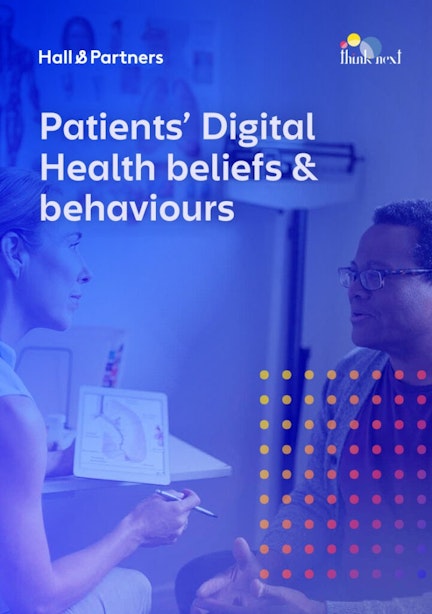Perspectives

When you go to your healthcare provider, you’re probably already stressed and anxious. If you experience discrimination, then it’s doubly damaging.
But that’s the experience of just under a sixth of all people in the US and more than a quarter of Black/African Americans, according to Hall & Partner’s Patient Trendscoping: What You Need To Know About Patients of the Future.
Sixteen percent of people in the US have felt discriminated against by a healthcare professional because of their age, gender, race/ethnicity, sexual orientation or weight. The figure is as high as 26% among Black/African Americans.
A third attribute discrimination on the basis of their race/ethnicity. Yet others may be discriminated against based on their age (31%), weight (23%) and lifestyle and health behaviors (23%).
The results are based on detailed online surveys taken by 10,500 adults in the US, China, UK, Germany and Japan and was conducted between July and September 2022 by Hall & Partners in partnership with ThinkNext.
What can healthcare providers do to improve?
These multiple drivers of discrimination are changing the way people use healthcare services. For example, some people simply avoid visiting a doctor altogether or default to social media for their medical advice.
For some, the solution is an overreliance on preventative care even though less than half of respondents (43%) feel that today’s US healthcare system is designed for preventive care, even though it could help reduce the cost burden on both patients and payers.
There are successful solutions that can make the healthcare experience more positive for some of these groups, which include millions of Americans. One approach that could help would be investing in at-home healthcare, which is particularly relevant to BIPOC audiences.
Black women, for example, feel more comfortable taking tests related to sexual health from home - 60% of Black Americans would consider at-home sexual health tests compared to 35% of White Americans and 36% of Asian Americans.
Insight, partnerships and smarter communications will help
But it will take more than this to solve the problem. Most healthcare brands need to take a strategic approach to the issue of discrimination, to identify where it’s happening, why it’s happening and how they can dramatically reduce the incidence.
This might include actioning some or all of the following five steps to ensure that best-in-class healthcare is open to all:
- Identify and measure implicit bias inside healthcare organizations;
- Gather insights into the varied experiences and inequities patients face across a multitude of treatment settings and disease states;
- Build partnerships with local communities and patient advocates to cultivate connections and establish a more trusted relationship between Pharma and patient audiences;
- Simplify communications to ensure patients can easily access their health information, including providing information in other languages; and
- Identify interventions to improve access for patients, such expanding self-service models and using technology to enable more human connections.
The additional burden of stress and trauma associated with discrimination can negatively impact a person’s health and quality of life. The healthcare industry needs to work harder to understand what contributes to bias and inequities in order to address the issue.
With so many people reporting discrimination for a wide variety of reasons, the need to shift from the traditional ‘for the patient’ model into a ‘with the patient’ approach has never been more urgent.
Start scoping out the future, today

Complete the form to below to talk to our team about purchasing the Patient Trendscoping report on 'Patients' Digital Health beliefs & behaviours'.







